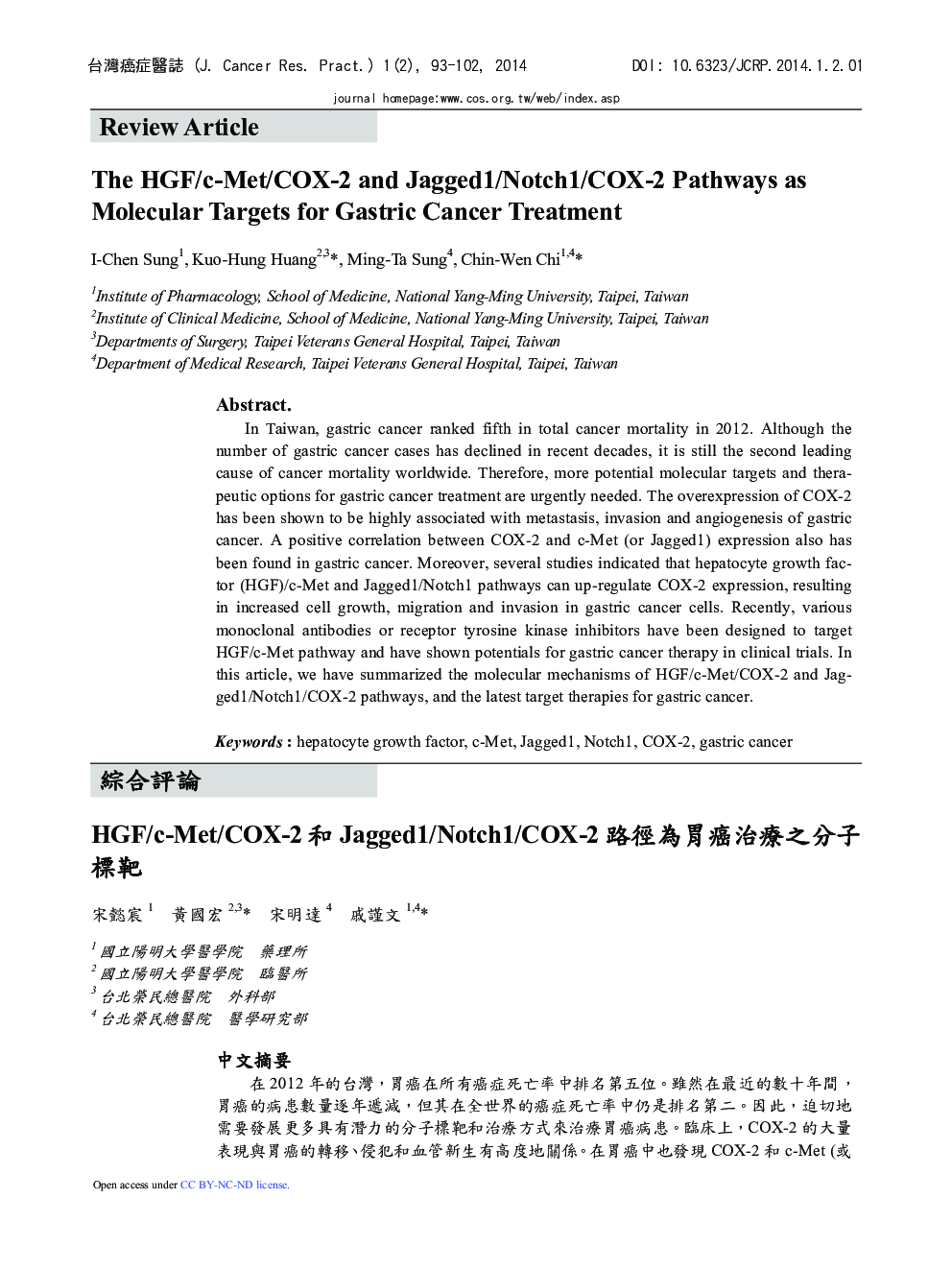| Article ID | Journal | Published Year | Pages | File Type |
|---|---|---|---|---|
| 3988808 | Journal of Cancer Research and Practice | 2014 | 10 Pages |
In Taiwan, gastric cancer ranked fifth in total cancer mortality in 2012. Although the number of gastric cancer cases has declined in recent decades, it is still the second leading cause of cancer mortality worldwide. Therefore, more potential molecular targets and therapeutic options for gastric cancer treatment are urgently needed. The overexpression of COX-2 has been shown to be highly associated with metastasis, invasion and angiogenesis of gastric cancer. A positive correlation between COX-2 and c-Met (or Jagged1) expression also has been found in gastric cancer. Moreover, several studies indicated that hepatocyte growth factor (HGF)/c-Met and Jagged1/Notch1 pathways can up-regulate COX-2 expression, resulting in increased cell growth, migration and invasion in gastric cancer cells. Recently, various monoclonal antibodies or receptor tyrosine kinase inhibitors have been designed to target HGF/c-Met pathway and have shown potentials for gastric cancer therapy in clinical trials. In this article, we have summarized the molecular mechanisms of HGF/c-Met/COX-2 and Jagged1/Notch1/COX-2 pathways, and the latest target therapies for gastric cancer.
